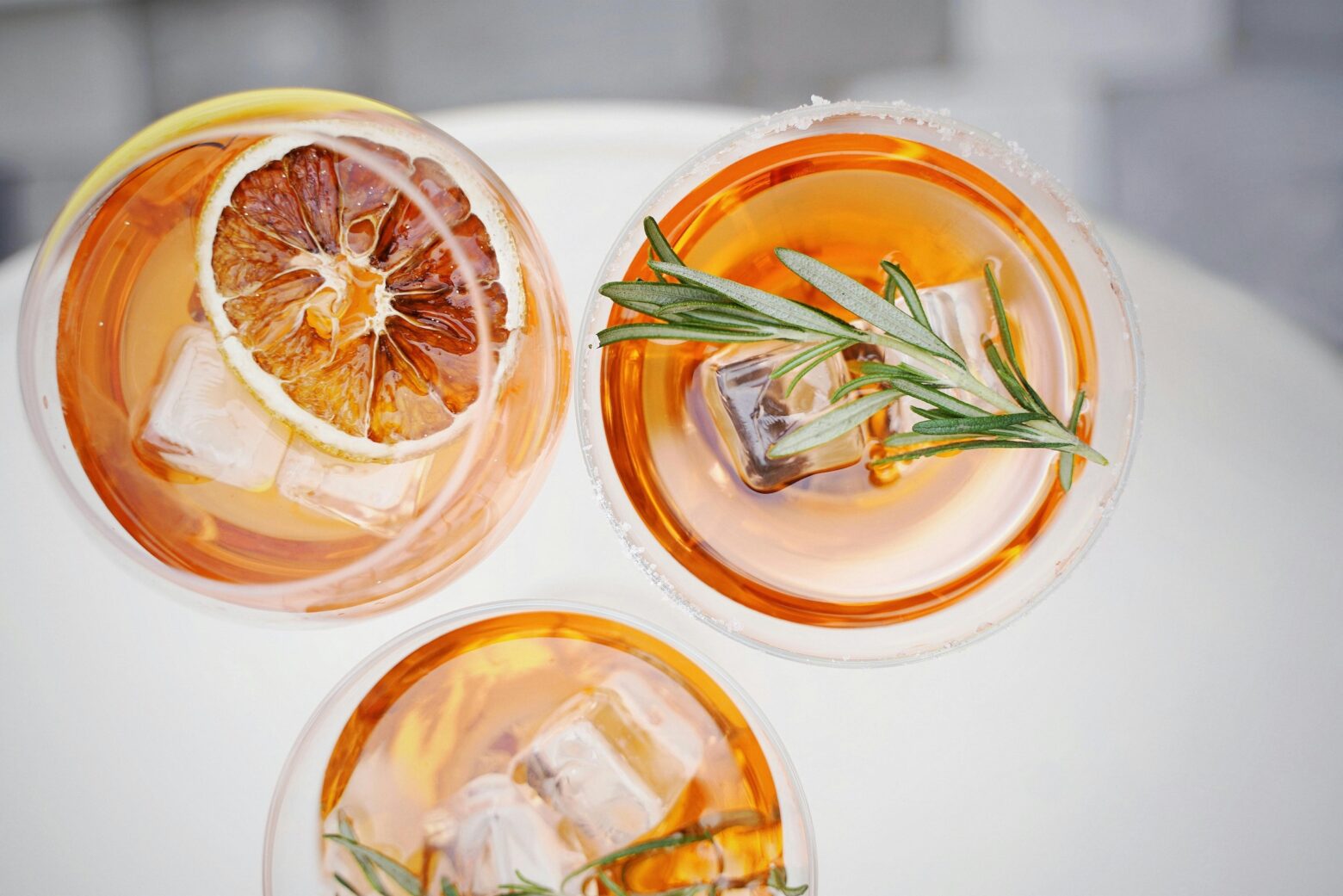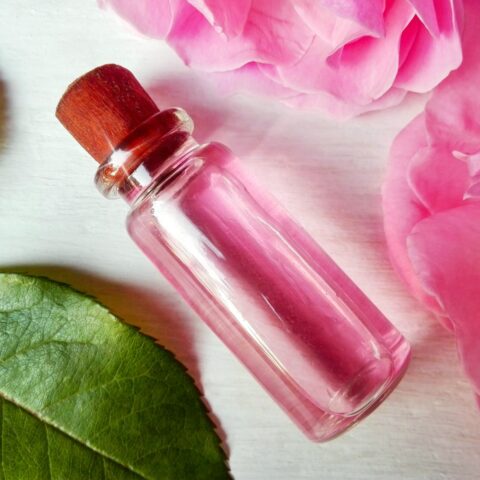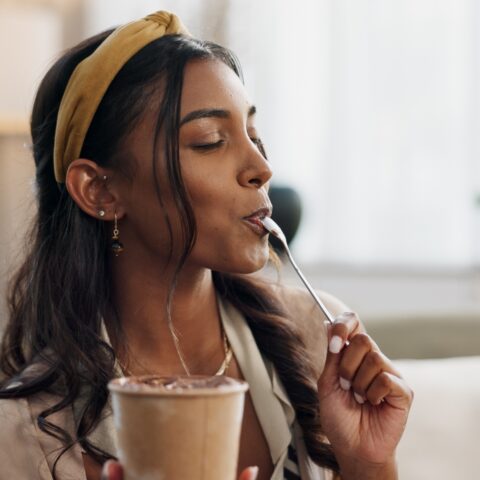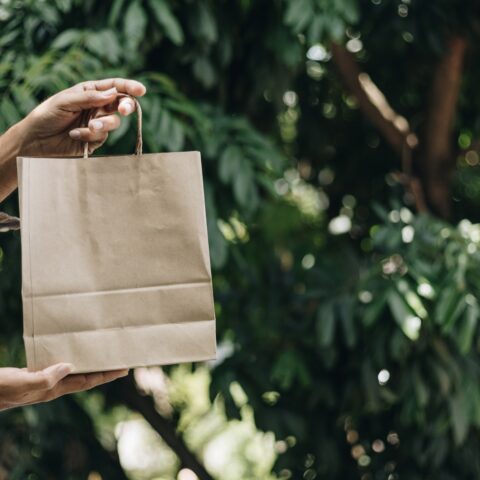7 Tips for Sober-Curious Living
Griffin McMath, ND and ND

Whether you’ve tried Sober October and liked it or needed to take a post-holiday break from booze with Dry January, there are many reasons to join the sober curious movement and reduce or cut out your alcohol intake—especially for your health. But walking the walk can be harder than talking the talk.
We’ve put together a list of situations you may find yourself in and paired each with a low-stakes tip as well as a mental reframe to reinforce your decision when you need a bit of extra motivation.
Though there are several tips for how to decline drinks in different social settings, it’s important to point out that “No” is enough of an answer to any invitation and your reasons are your own business. Any environment or individual that makes you feel uncomfortable, pressured, or like you need to justify yourself, is one worth considering distancing yourself from.
When It’s the Cultural Norm or Socially Acceptable
Alcohol has permeated countless daily activities and nearly every demographic. Alcoholic drinks are now available at movie theatres, wine quotes and graphics adorn t-shirts or mugs everywhere, and even half marathons are planned with booze pitstops along the way.
The big takeaway? Pairing wine with cheese isn’t the only normalized alcohol behavior now. Alcohol’s many forms are widely broadcasted as normal to pair with anything from your dessert, zodiac sign, or favorite TV show to workout classes.
With something now as widely embraced as alcohol is, being sober curious can feel like you’re going against the grain, or it can feel odd or foreign to not seek it out. One of the best ways to start not choosing alcohol is to do just that—just start not choosing it. In group settings, start reaching for the other option. And build that behavior as normalized for you.
It’s Your Birthday—Don’t Drink If You Don’t Want To
Low-Stakes Tip: Make a wish, but maybe pass on the shots. Get together to celebrate with your friends or family earlier in the day, when alcohol is less of a temptation. Opt to invite everyone for a physical activity like a hike (where water would be consumed throughout) or a paddle, and plan ahead for hydrating mocktails and energy-renewing treats to be ready in the car cooler when you’re done.
Mental Reframe: When we think birthday, we tend to think of three words that typically follow it: cake, gifts, and party. Though ideas for healthier cakes and conversations on gifts are another topic, “party” doesn’t have to mean hitting up the bars until close or whole weekends spent cleaning out vineyards.
Tap into this annual event as a reflection of the year that has passed and a moment to set intentions for the year ahead. If you arrange the celebration to be reflective of what you want to invite into your life in the coming year, you’ll often notice a healthier “party” will come to life.
When You Want to Take the Edge Off
Stress or anxiousness can make us want to reach for some liquid courage—or maybe you’re offered a drink and you feel pressure to make the group order easy or you don’t want to seem like the odd one out. Practice saying “No” or “No, thank you” in more casual settings and build up your comfort of declining offers to drink alcohol from there. Place your mental and emotional focus on how and who you’re connecting with rather than what you’re consuming.
Parent-to-Parent Hangouts
Low-Stakes Tip: Support groups—whether formal or coincidental—are an incredible thing for first time parents or parents of young children yearning for some adult conversation. For the next meetup, suggest something sober curious that can sustain the stress-relieving impact of this camaraderie.
One idea could be a group stroller walk around the park where everyone meets at your car to fill up their travel mug from your thermos of hot cocoa or iced tea, depending on the season.
Mental Reframe: Alcohol’s lure is sometimes mistakenly associated with stress-relieving properties when, in fact, it only provides that effect very temporarily in your system before kicking off a cascade of reactions with the opposite effect in your body (that last much longer).
Opportunities for peer-to-peer connection during this transition into parenthood that support your newly challenged mental and physical health can be especially impactful when you’re sober. Additionally, not having a drink allows you to be present to take care of yourself and your family the day after an adults-only night out.
Office Holiday Party
Low-Stakes Tip: When the party planning committee or leadership team announce the date for the upcoming event, ask them (or pull your supervisor aside) if they can provide a few fun alcohol-free options. Both the finance team and HR department will be very happy to accept this request!
Mental Reframe: Everyone wants to get home safe from work and not worry about feeling a little too relaxed that they say something to a coworker they may regret later. Maintain your confidence and dignity in the workplace by being proactive in requesting favorite alcohol-free options in advance that you’ll look forward to drinking at the event.
Holiday Party Mocktail Ideas
When It’s Part of Your Routine
Sometimes we may not even realize that alcohol is part of our daily or weekly rhythm. Maybe we drop our shoes and bag at the door at the end of a workday and immediately walk to the fridge to crack open a cold beer and relax. Maybe one glass of wine each night is a normal part of our dinner menu, sometimes turning into two or more.
Whether it’s at the weekly poker game, trivia night, Sunday brunch, or an airport ritual before flying, alcohol creeps into the crevasses and major moments of our daily life before we know it.
With a little nonjudgemental observation, we can begin to notice our traditions or rituals, and we can start to release the grasp alcohol has in so many parts of our routine. If others at home can join you from the start of just observing each of our own habits, the conversation may have an increased likelihood of transforming into actions.
After Work or as Dessert
Low-Stakes Tip: Make batch mocktails twice a week and keep in the fridge to enjoy whenever you want. You can store them in individual mason jars or reused glass bottles, or make a big pitcher to serve out portions into a fun cocktail glass.
If you have something special and tasty you can look forward to, you’re immediately creating a pleasing, alcohol-free alternative in place of a not-so-healthy option without needing to kick the habit of seeking out a beverage.
Additionally, you can still use little flairs to make your sober-curious drinks feel extra special. Freeze fruits into ice cubes or create unique cocktail ice molds to feel like you’re indulging in a real treat. Or dehydrate citrus slices for easy, cheap garnishes that will last a while!
Mental Reframe: Drinks at the end of the day (and especially before bed) impact your body’s blood sugar and circadian rhythm, therefore impacting not only your metabolic health but also your body’s ability to recover at night through quality sleep.
If part of your daily routine is feeling less than satisfied with last night’s sleep and compensating with a large, caffeinated beverage first thing in the morning, cutting alcohol from your nightly routine may actually bring you better mornings.
When Alcohol Is a Reward or Part of a Celebration
Life milestones and achievements do not need to be synonymous with drinking alcohol. Take this opportunity to recognize you can separate your emotional connection to alcohol with your sense of accomplishment and celebration. Redefine what it means for you to honor your hard work at the end of a project or how you wind down and relax while on vacation.
Post-Workout Gathering
Low-Stakes Tip: If the group goes out for a boozy brunch after the marathon or to the bar after the recreational league game, when asked if you want a beer either simply ask for a water with lemon instead or go with your friend who is grabbing the beers and grab waters for everyone, including yourself.
Mental Reframe: You just had a great workout, and your body needs essential nutrients to recover—not something that will cause damage. Give your body what it needs (Hint: you won’t find it on the booze portion of the menu).
You Got the Job or Earned the Promotion
Low-Stakes Tip: Congrats! You worked hard, the long search is over, or your dedication and long hours were noticed. Keep a wish list of items, a list of self-care tasks, and ideas for fun (sober) activities on your phone that range in price from $0-$50. These should all be things that bring you joy and make you feel good, but not something you indulge in on a regular basis.
If you want to honor the moment and your hard work or accomplishment, or celebrate by yourself or with others, you have a list you can come back to or share with others at any time that will bring you joy and celebration without the risk of a hangover or a bar tab gone too far.
Mental Reframe: What does celebration mean to you? What behaviors, gifts, or activities reflect your values, priorities, and beliefs? Celebrations tend to be the light at the end of the tunnel. How is your celebration reflecting what you see as the “light” in your life?
Taking some time to diversify your commemorations of life’s milestones, successes, or even how we get past failures or missed opportunities, brings a well-rounded and healthier way of moving through life’s ups and downs. It also may help us fully realize a more authentic way of being our true selves.
When You’re Examining Your Relationship with Alcohol
Both curiosity and confidence can be contagious, and this can work in your favor when it comes to being sober curious. Proximity to others who are asking questions about their relationship with alcohol can make you stop and wonder, too. This environment of curiosity can be the start of conversations among friends and family members that may involve challenging normalized behaviors or creating a support network to rally alongside you for accountability.
If You’ve Ever Wondered About Your Drinking
Low-Stakes Tip: Sometimes crowds can be overwhelming and can be a contributing factor to choosing to drink or drinking in excess. Take breaks often in these settings where you can decompress by yourself away from the buzz, and keep a full, hydrating drink in your hand so you don’t have to worry about being given something as much—and to keep your hands busy.
Mental Reframe: There’s no need to be embarrassed about reducing alcohol intake or saying no when offered a drink. Maybe you’ve noticed that with age or after injury, your body’s response to alcohol is more extreme, or maybe you don’t have reasons other than you just don’t want to drink—that’s your business. That being said, if you’re noticing something intense or suspicious, always speak to your doctor to see if there’s an underlying issue.
Otherwise, “act upstream” and create some distance between you and alcohol rather than trying to “act downstream” and spend more money and time and energy and day wasted recovering from alcohol. Observing your relationship with a poisonous substance is going to be of benefit to anyone who consumes—even if just once in a while. Accept that there may be a transition period where you crave or miss it, and connect with friends to create support around you during this time.
You’re Ready to Start Your Sober-Curious Journey
Want to join the party but bring your own fun and tasty alcohol-free beverages? Here’s a list of recipes you can explore—everything from cool, tropical drinks to warm, spiced beverages. Be in control of your ability to choose an alcohol-free option by being the person to provide the choice to yourself and others.
As more and more people create memorable social gatherings free of alcohol, decline drinks with ease at a party, or comfortably celebrate their football team’s big win without booze, we can look around us and see new potential realities that don’t include alcohol.
Who knows, maybe someone in your environment will observe you re-examining your relationship with alcohol or notice you confidently decline an offer to drink, and start to reduce their intake, too. You could be the start of a sober curious ripple effect in your own community.




